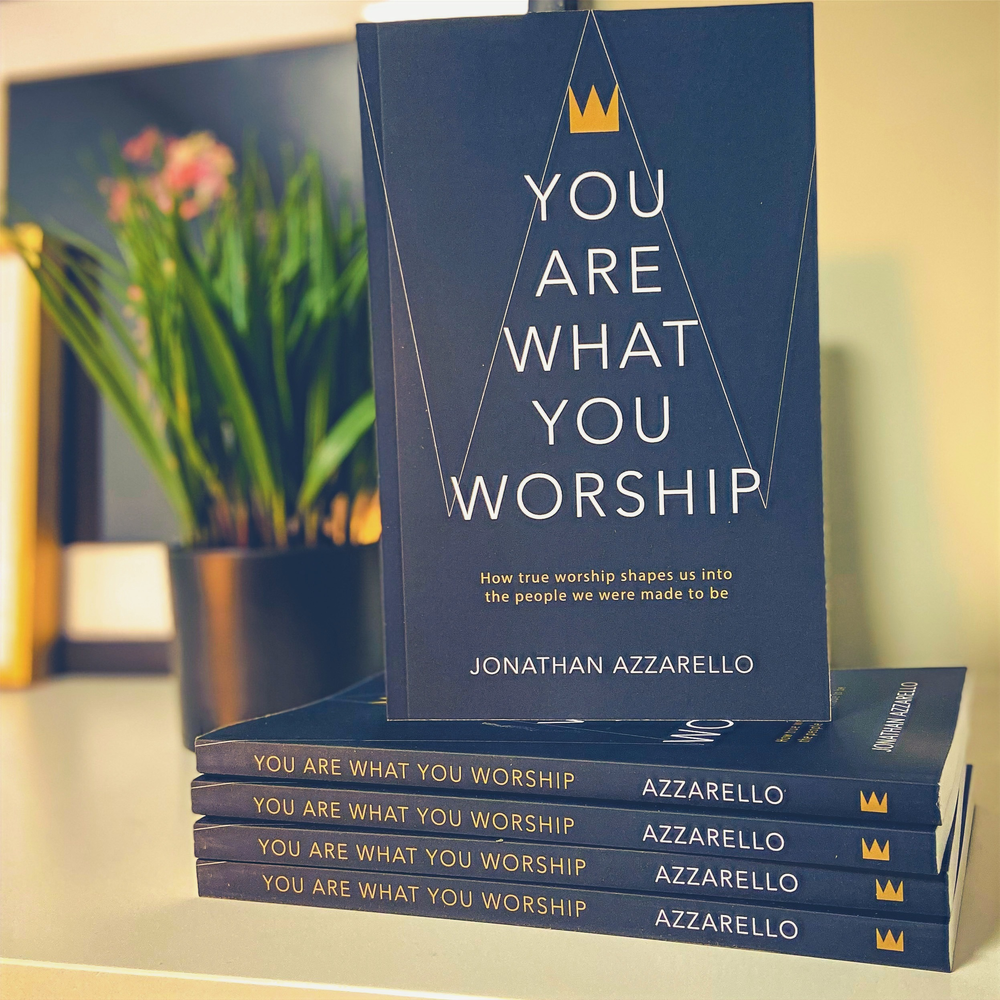A few years ago, my good friend Matt and I began studying the Bible together in a way that I had never really done before. We took our time reading one or two chapters per week so we could wrap our minds around what was happening through each passage of Scripture. We wanted to know the historical and theological context; so we read commentaries, ancient maps, articles, and any other resources we could find along the way. We would each journal a summary of the chapter we read, along with anything specific that we had learned, and then we would send a copy of our journals to each other.
n
nAs disciplined as I’d like to think that I am, studying the Bible is one of the easiest appointments on my calendar to cancel. But doing it with a friend kept me honest and motivated. I can honestly say that this journey has been life-changing for me. In fact, studying the Bible in this way caused the major paradigm shift in my life that led me to write the book, “You Are What You Worship.”

nAs I studied the Bible, it felt like I had a backstage pass to God’s big show. I have read through it before, but this time it was different. I read it with fresh eyes and a new passion to know God more. And I feel that I do. I learned more about his likes and dislikes; what angered him and what pleased him. And what I couldn’t get over (and still can’t) is the stark contrast between worship in the Bible and worship as we know it. Worship as we know it has been reduced to singing in church, listening to podcasts, and going to a mid-week Bible study. Don’t get me wrong—these things are important. But biblical worship is so much more than this. Biblical worship is an adoration that leads to transformation. It is not only a passion to be with God, but also a passion to be transformed by God into the image he designed us to reflect. God’s profound desire for humanity is that we embody his relational qualities in all of our relationships. God’s passion is for us to bear his image by loving him and loving people. This is an emphasis in the Bible that, I believe, is not an emphasis in modern Christianity. There is a clarity in the Scriptures regarding humanity’s purpose that seems to be unclear to many people today. As a worship pastor, I have a passion to see people worship in the fullest, most biblical sense of the word, not just in a song. And it’s out of this passion to see people worship and out of the realization that many “Christians” are missing the mark in biblical worship that I felt prompted to write this book. “You Are What You Worship” is not about music or congregational singing, though I do address both topics. It is about true worship. It’s about the kind of worship that shapes every part of us into who we are and what we do.
n
nIn the early 1930s, American nutritionist Victor Lindlahr coined the phrase and later published a book called, “You Are What You Eat.” Lindlahr took cues from the French lawyer Anthelme Brillat-Savarin who wrote in 1826, “Tell me what you eat, and I will tell you what you are.” The idea was that whatever you put into your belly would determine the condition of your mental and physical health. In other words—junk in, junk out. If you eat healthy, then you will be healthy. This concept is not only true metabolically, but also spiritually.
n
nWorship shapes us, and we can tell what we worship by the way that we live our lives. This book is about how the characteristics, values, and actions that we personify tell the story of what we are worshiping. What we are filled with is what will flow out of us, and what we love will determine how we live.
n
n“You will recognize them by their fruits. Are grapes gathered from thorn bushes, or figs from thistles? Likewise, every good tree bears good fruit.”—Matthew 7:16-17 (NIV)
n
nI never dreamed in a million years that I would write a book, but like the prophet Jeremiah, this message that God planted into my heart felt like a burning fire shut up in my bones, and it had to come out. My goal is to expose the essence of the true, life-changing, biblical worship that God desires from us, and then to call us into it. I pray that as you read this book you will allow it to challenge your priorities, your purpose, and the way you think about your entire life.
nn
Adapted from the Introduction of “You Are What You Worship.”
n
